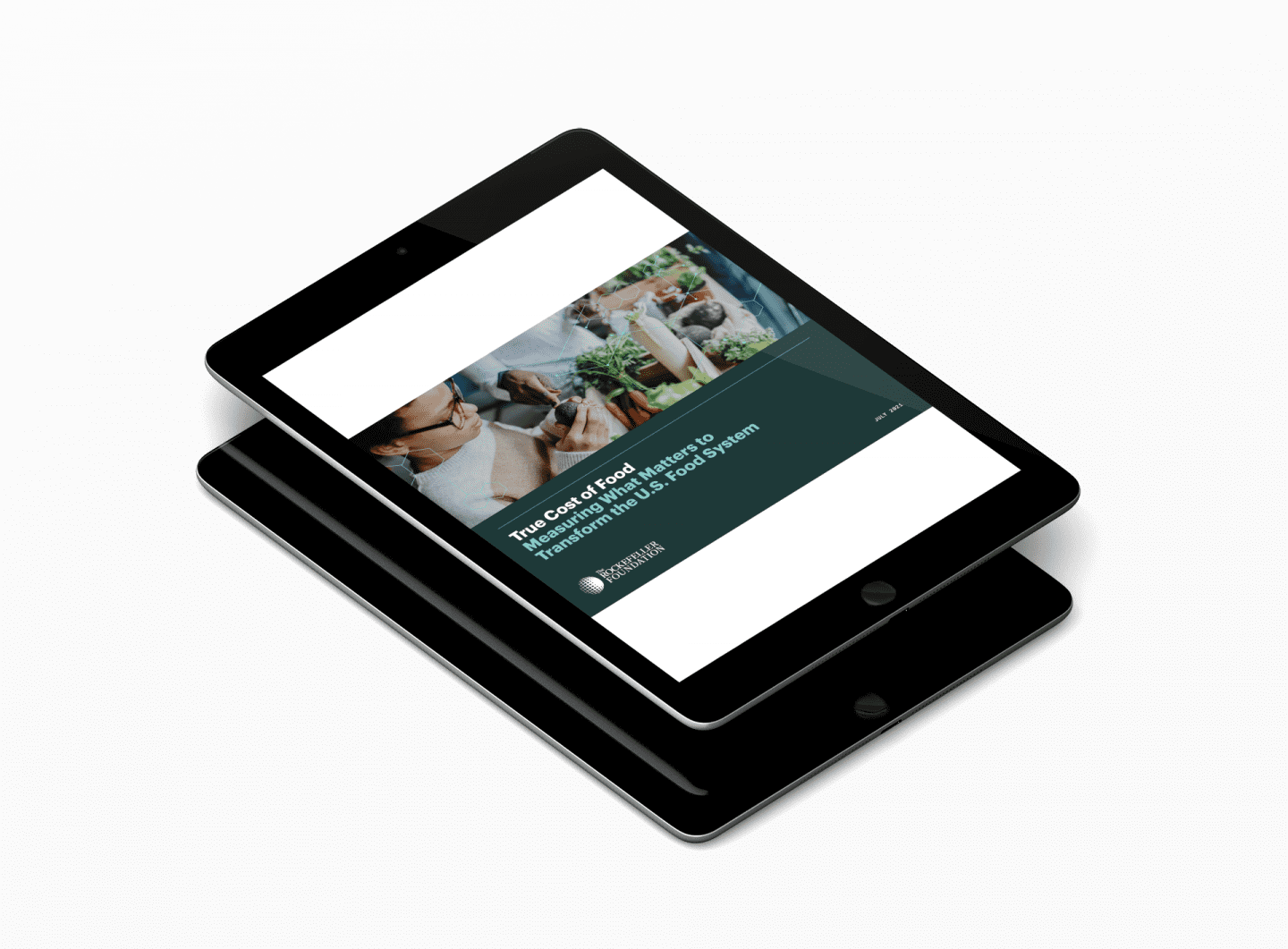- 92%
of school food workers are female
- $40billion
in annual benefits to society from school meal programs
- 1/2of a child's calories
are consumed on school days
- 84%
of low-income, food-insecure households with school-age children access free or reduced-price lunches through school meals programs
- Report
True Cost of Food: School Meals Case Study
Our latest report True Cost of Food: School Meals Case Study demonstrate school meals are essential for the health and economic stability of students and communities. Using the True Cost Accounting methodology, The Rockefeller Foundation and the Center for Good Food Purchasing find that every dollar invested in U.S. school meal programs provides more than $2 in benefits to society.Download PDF
This analytical model contains the key calculations, data sources, and assumptions that we used to account for the human health, environmental, societal, and economic impacts of the school meal programs. We believe the model represents a critical first step in estimating the true value of school meals. There is much more work to do and we invite all interested partners to continue building, improving, and expanding on the model we made available here.
Related Updates

True Cost of Food: Measuring What Matters to Transform the U.S. Food System
The True Cost of Food in the U.S. In the U.S., food costs more than our receipt at the grocery checkout. Our food system rings up immense “hidden costs” from its impact on human health, the environment, and social and economic inequity. Consider this: In 2019, American consumers spent an estimated $1.1 trillion on food. […]
More